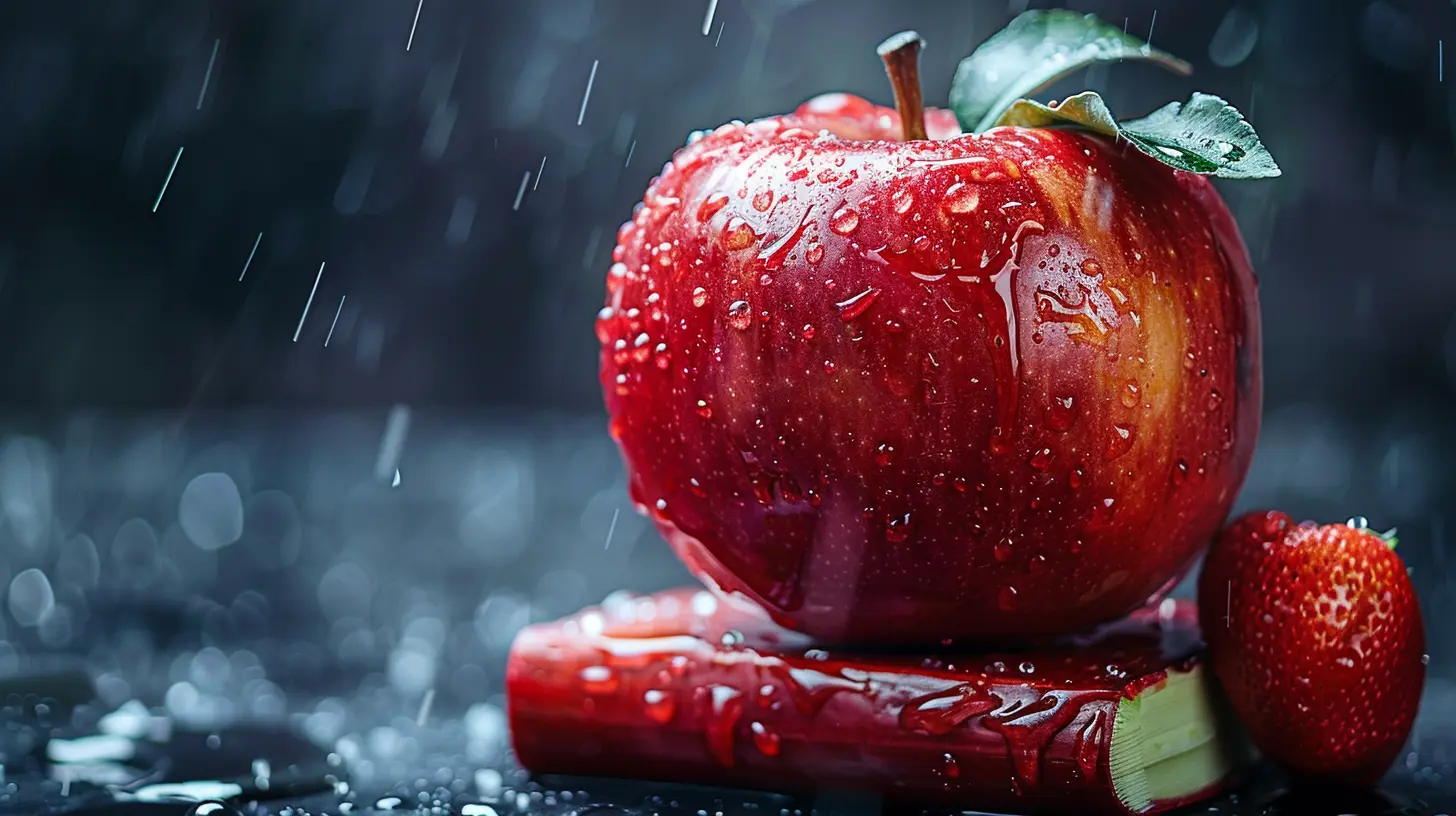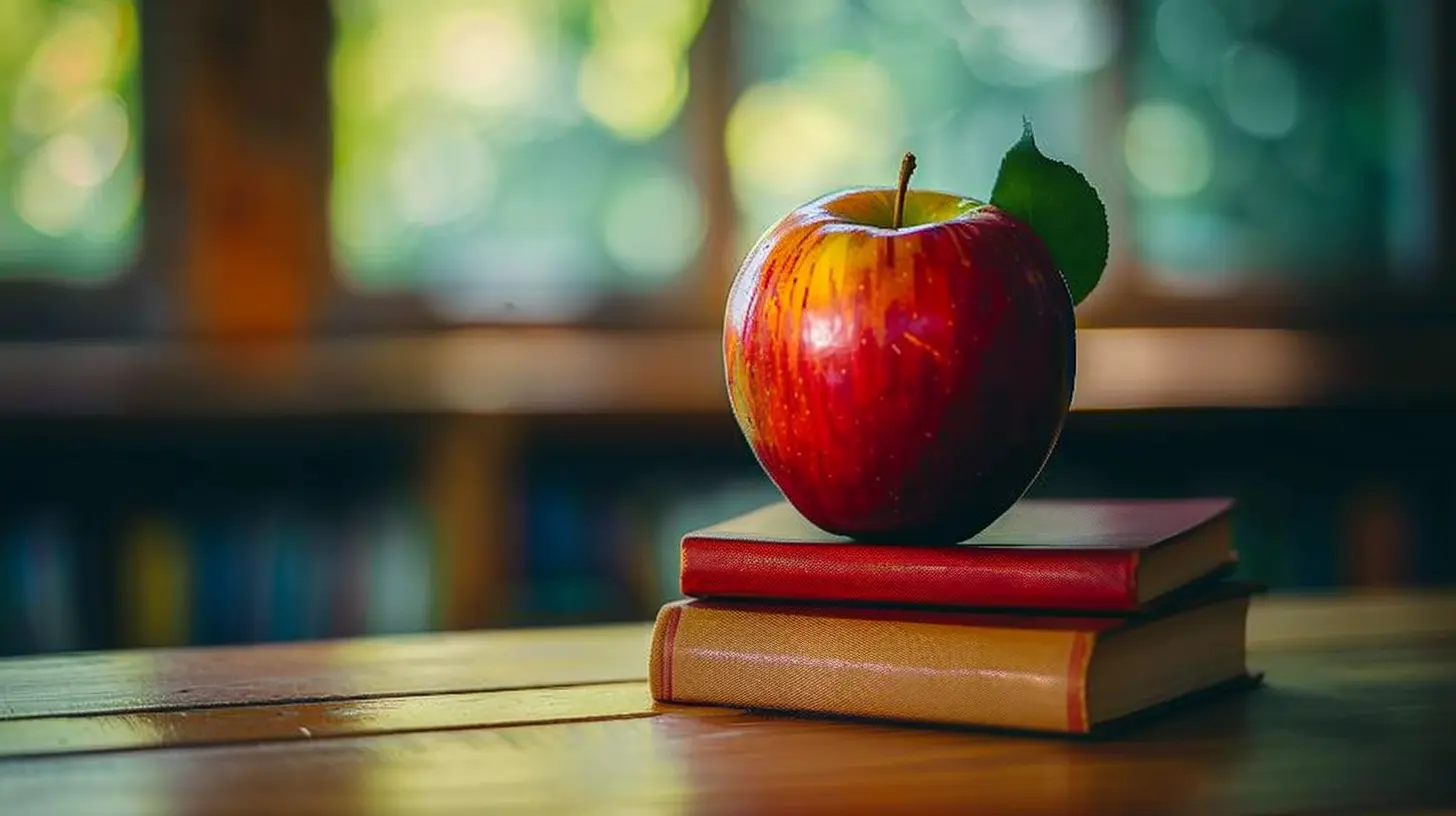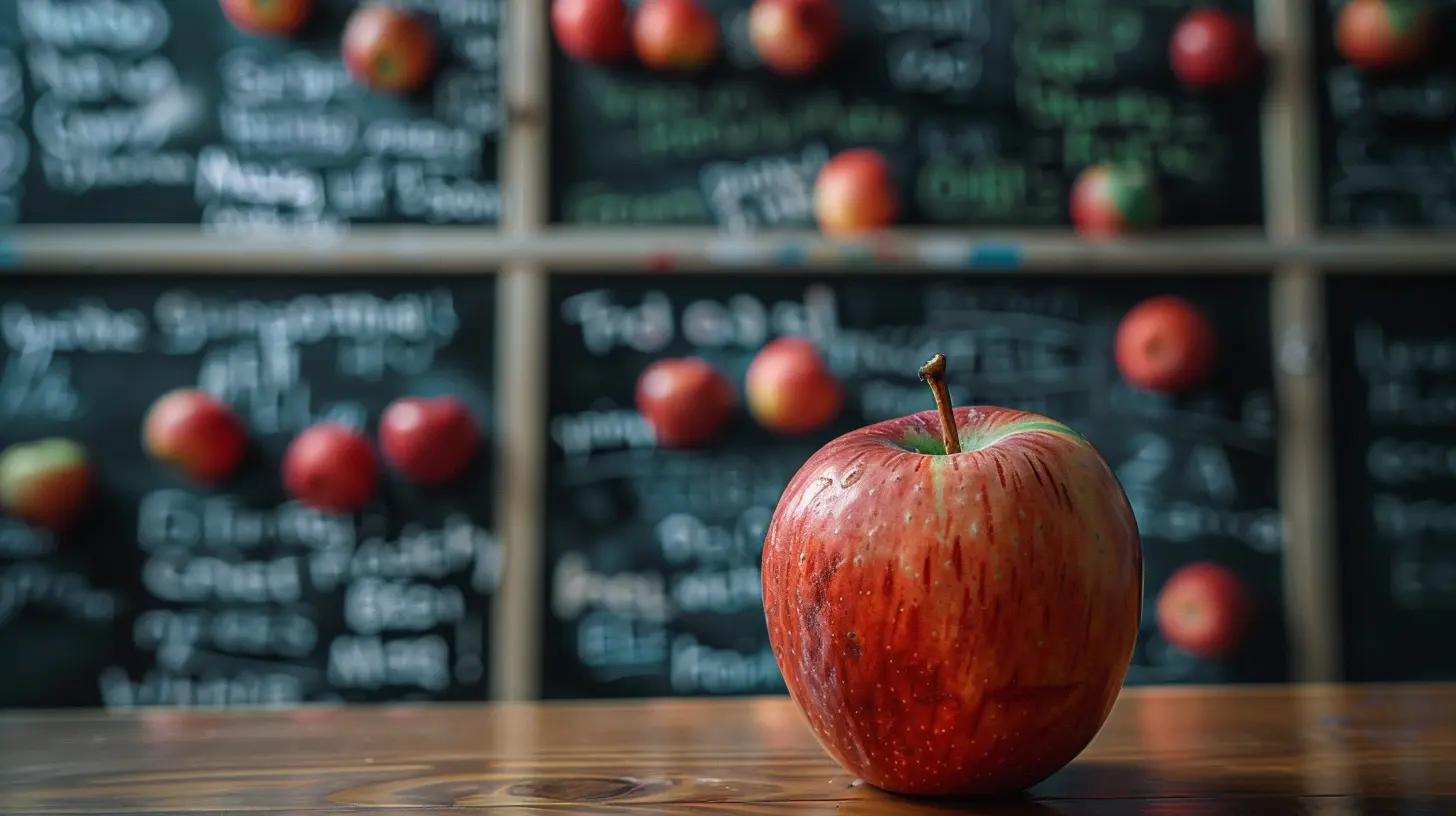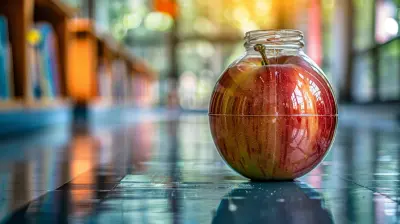The Impact of Nutrition on Your Study Performance
16 October 2025
Let’s be real for a second—studying can be exhausting. Whether you’re hitting the books for finals, cramming for a midterm, or trying to finish a seemingly never-ending paper, your brain is running a marathon. But here’s a thought: would you run a marathon without fueling up first? Didn’t think so.
Yet, when it comes to studying, many of us overlook one essential piece of the success puzzle—nutrition. What you eat doesn’t just impact your body; it significantly affects your brainpower, your ability to focus, your mood, and ultimately, your academic performance.
So grab a snack (a healthy one!), get comfy, and let’s dive into how nutrition can totally level up your study game.
Why Nutrition Even Matters When You Study
Think of your brain as a high-performance engine. It’s always running—even while you sleep. But to function at its best, it needs quality fuel. That fuel comes from the food you eat.Now, if you feed it a constant stream of energy drinks, chips, and sugary treats, it’s going to crash and burn. But give it the good stuff—whole foods, healthy fats, proteins, and vitamins—and your brain will thank you in memory, concentration, and stamina.
Your Brain Runs on Glucose
Ever feel foggy after skipping lunch or sluggish after a sugar crash? That’s your brain reacting to inconsistent fuel. Glucose, which comes from carbohydrates, is your brain's primary energy source. But here’s the key: not all carbs are created equal.Choose complex carbs (like oats, whole grain bread, brown rice) over simple sugars. Complex carbs release glucose slowly, giving your brain steady energy without those dreaded crashes.
The Connection Between Food and Focus
Let’s talk attention span. You know how some days you’re laser-focused and others you can’t even remember what you just read five minutes ago? That could be your diet talking.Omega-3s: The Brain’s Best Friend
Fish like salmon, mackerel, and sardines are rich in omega-3 fatty acids. These healthy fats are essential for brain structure and cognitive function. They improve memory, boost mood, and can even reduce anxiety—super helpful come exam time.Don’t like fish? No worries. You can get omega-3s from chia seeds, flaxseeds, walnuts, and even some fortified eggs or plant-based supplements.
The Role of Protein
Protein isn’t just for gym bros looking to build muscle. It supplies your body with amino acids, which help produce neurotransmitters like dopamine and serotonin. These brain chemicals are crucial for alertness, focus, and feeling good.Good sources of protein: eggs, Greek yogurt, lentils, chicken, tofu, and almonds.
Nutrients That Supercharge Your Brain
Here’s a cheat sheet of the key vitamins and minerals your brain craves—and where to find them:- Vitamin B12: Keeps your nerves and blood cells healthy. Found in fish, meat, dairy, eggs.
- Iron: A lack of it can leave you feeling drained. Sources: spinach, red meat, lentils, pumpkin seeds.
- Zinc: Supports memory and learning. Found in nuts, seeds, dairy, whole grains.
- Magnesium: Helps with stress and improves sleep. Get it from bananas, dark chocolate, leafy greens.
- Vitamin D: Boosts mood and brain function. Sunshine is great, but also try mushrooms and fortified foods.
What to Eat Before You Study
Your pre-study meal or snack should fuel your brain without making you feel too full or sleepy.Smart Study Snacks:
- Apple slices with peanut butter- A handful of mixed nuts
- Greek yogurt with berries
- Whole grain toast with avocado
- Hummus and carrot sticks
Avoid anything heavy, greasy, or packed with sugar. These foods can make you sluggish and zap your concentration.
What to Eat While Pulling an All-Nighter (If You Really Must...)
Let’s face it: all-nighters happen. But if you’re going to stay up and burn the midnight oil, your body needs support.Go for foods that provide sustained energy and are easy on the stomach:
- Trail mix (homemade is best!)
- A boiled egg and a banana
- Oatmeal with almonds and honey
- Smoothies with spinach, fruit, and protein powder
And above all—stay hydrated. Dehydration can lead to headaches, fatigue, and trouble concentrating. Keep that water bottle next to your books.
Foods That Hurt Your Brain (Sorry, Not Sorry)
Some foods aren't doing you any favors when it comes to studying. They might feel comforting in the moment, but they can leave you feeling sluggish, distracted, or just straight-up tired.The Worst Offenders:
- Sugary drinks: That soda might give a temporary buzz, but the crash is brutal.- Fried foods: High in trans fats, which can slow down brain function.
- White bread and pastries: These spike your blood sugar and then leave you tired.
- Energy drinks: Full of caffeine and sugar, they mess with your heart rate, sleep, and concentration.
Stick to whole, nutrient-rich foods that empower your brain, not sabotage it.
Timing Is Everything: Meal Timing and Study Performance
It’s not just what you eat—it’s when you eat, too. Skipping meals or eating at weird times throws your body off balance. Think sluggishness, poor focus, and irritability.Best Practices for Optimal Energy:
- Don’t skip breakfast. A balanced breakfast kickstarts your brain and boosts morning productivity.- Eat smaller, balanced meals throughout the day to maintain steady energy.
- Avoid massive meals right before a study session—they’ll make you feel sleepy.
The Importance of Staying Hydrated
Water might not be as exciting as coffee or juice, but it’s your secret weapon. Your brain is around 75% water, and even mild dehydration can mess with concentration, short-term memory, and mental clarity.Aim for around 8 cups a day, more if you’re active or drinking caffeine. Add lemon, cucumber, or mint if plain water bores you.
Can Nutrition Really Improve Academic Performance?
Absolutely. Many studies have shown that students who eat a healthy, balanced diet perform better academically. They have better memory, more focus, more energy, and even improved mood—critical when you’re juggling school, work, and everything else life throws at you.Let’s break it down:
- Better Concentration = Study sessions are more productive.
- Improved Memory = You retain more info for tests.
- Elevated Mood = You’re less likely to procrastinate when you feel good.
- Sustained Energy = You can study longer without burning out.
Real Talk: Creating Your Own Study Diet Plan
Want to change your eating habits to boost your brain? Start small. Here’s a simple roadmap:Morning:
- Oatmeal topped with berries and almonds- Green tea or water
Mid-Morning Snack:
- Banana + handful of walnutsLunch:
- Grilled chicken wrap with whole grain tortilla, lettuce, avocado- Apple or orange
Afternoon Snack:
- Greek yogurt + honey + chia seedsDinner:
- Grilled salmon or tofu- Quinoa or brown rice
- Steamed broccoli
Evening Snack (if you're studying late):
- Warm milk with a bit of turmeric- Carrot sticks or a boiled egg
Final Thoughts: You Are What You Eat (Seriously)
When you’re in school, it feels like your brain is your most valuable asset—and guess what? It is. So why not treat it right?Changing your eating habits doesn’t mean you have to go full-on health nut or give up all your comfort foods. It just means being intentional about what you put into your body. Make small shifts. Listen to how your body responds. And remember—it’s not just about acing exams, it’s about feeling good while doing it.
Because at the end of the day, the best version of you—the sharp, energized, focused you—starts with what’s on your plate.
Bonus Tips for Brain-Boosting Nutrition
- Meal prep on Sundays so you’re not tempted by vending machines during the week.- Pack snacks when you head to class or the library—your future self will thank you.
- Avoid multitasking while eating—it helps you tune into your hunger and avoid overeating.
- Try mindful eating—really chew, savor, and enjoy your food. It helps digestion and satisfaction.
all images in this post were generated using AI tools
Category:
Study HabitsAuthor:

Madeleine Newton
Discussion
rate this article
1 comments
Cypher McInerney
Nourish your brain; feed it rightly for grades that shine brighter than your ambition!
October 17, 2025 at 3:04 AM

Madeleine Newton
Thank you! Nutrition plays a crucial role in cognitive function and can significantly enhance study performance. Feed your brain well for optimal results!


